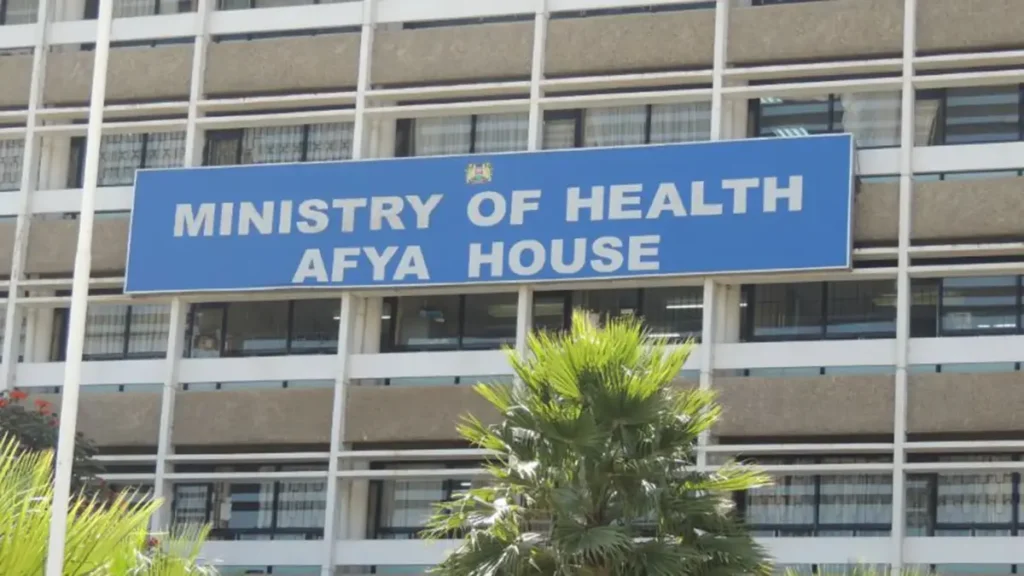In a landmark decision that highlights both gratitude and systemic challenges in Kenya’s healthcare sector, the Ministry of Health (MoH) has announced a Sh6.3 billion gratuity payment for more than 8,000 medical professionals who served on the COVID-19 frontlines but now find themselves jobless.

The substantial payout comes amid growing criticism of the government’s failure to absorb these essential workers into permanent positions within the public health system, despite their sacrificial service during the pandemic’s darkest hours.
Health officials confirmed yesterday that the gratuity package aims to recognise the extraordinary contributions made by these healthcare workers, many of whom worked tirelessly in high-risk environments during the peak of the coronavirus crisis. The announcement represents one of the largest one-time compensation packages ever offered to temporary medical staff in Kenya’s history.
“These medical professionals put their lives on the line when the country needed them most,” said a senior Ministry of Health official speaking on condition of anonymity because they weren’t authorised to discuss the matter publicly. “While this payment acknowledges their service, we recognise it doesn’t address the broader issue of their current unemployment.”
The decision affects a diverse group of healthcare workers, including nurses, clinical officers, laboratory technicians, and other medical staff who were recruited specifically to bolster the country’s Covid-19 response. Despite their crucial role in managing the pandemic, these professionals have found themselves out of work as counties cite budget constraints and limited positions as barriers to their permanent employment.
Dr Sarah Kimani, spokesperson for the affected healthcare workers, welcomed the gratuity announcement but emphasised the broader implications of leaving trained medical professionals unemployed. “While we appreciate this recognition of our service, what we really need is integration into the healthcare system. Kenya faces a significant shortage of medical professionals, yet here we are – trained, experienced, and eager to serve, but without positions.”
The gratuity package has sparked debate about resource allocation within Kenya’s healthcare sector. Health economists point out that the Sh6.3 billion one-time payment could have been structured differently to create sustainable employment opportunities within the public health system.
Healthcare policy expert Dr James Odhiambo notes, “This situation exemplifies the disconnect between Kenya’s healthcare needs and its employment practices. We’re paying billions in gratuity to professionals we desperately need but claim we cannot afford to employ.”
The issue has also drawn attention to the broader challenges facing Kenya’s decentralised healthcare system. Under the constitution, county governments are responsible for most healthcare services, but many claim they lack the financial resources to expand their medical workforce.
County officials have defended their position, citing budget constraints and wage bill ceilings imposed by the national treasury. “We recognise the value these professionals would bring to our healthcare facilities,” said a representative from the Council of Governors. “However, without additional funding from the national government, most counties simply cannot absorb more healthcare workers into their payroll.”
The announcement has prompted calls for a comprehensive review of healthcare staffing policies and funding mechanisms. Labour unions representing healthcare workers argue that the current situation undermines Kenya’s ability to respond to future health crises and maintain adequate healthcare standards.
Looking ahead, the Ministry of Health faces pressure to develop a sustainable solution for integrating these experienced professionals into the public health system. Experts suggest that failure to do so could result in a brain drain as frustrated healthcare workers seek opportunities abroad or in the private sector.
The gratuity payments are expected to be processed within the next financial quarter, providing some immediate relief to the affected healthcare workers. However, the longer-term question of their employment remains unresolved.
As Kenya continues to grapple with various public health challenges, including disease outbreaks and the need to strengthen its healthcare infrastructure, the inability to retain experienced medical professionals raises serious concerns about the country’s healthcare future.
The situation serves as a stark reminder of the complex challenges facing Kenya’s healthcare system, where financial constraints, administrative hurdles, and policy limitations continue to impact both healthcare delivery and the professionals who provide these essential services.
















